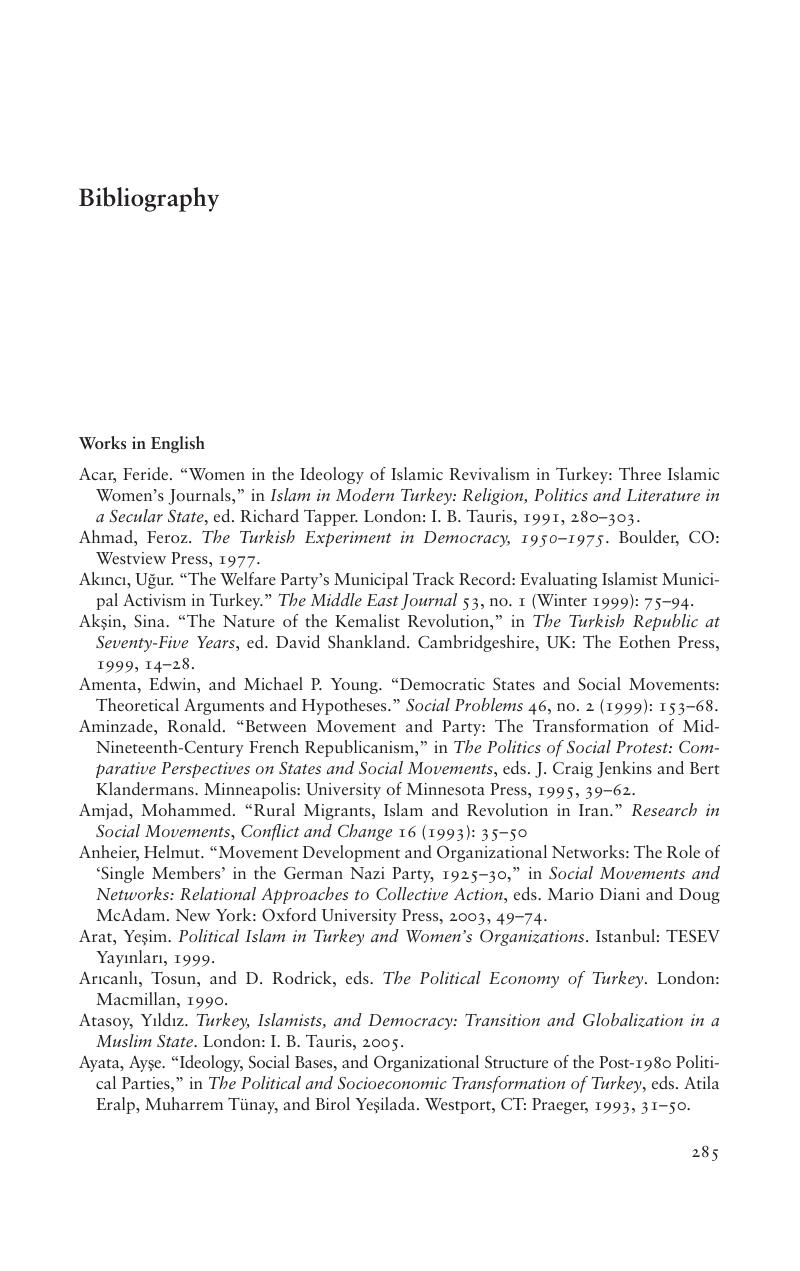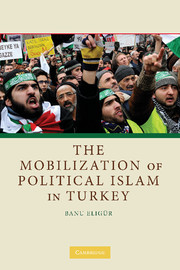Book contents
- Frontmatter
- Contents
- List of Tables
- List of Diagrams, Charts, and Boxes
- List of Acronyms
- Acknowledgments
- Preface
- 1 Introduction
- 2 Emergence of the Islamist Social Movement in Turkey
- 3 The Turkish-Islamic Synthesis and the Islamist Social Movement
- 4 The Malfunctioning State and Consolidation of the Islamist Social Movement
- 5 Organizational Dynamics of the Islamist Social Movement
- 6 The Soft Intervention of 1997 and the Islamist Social Movement
- 7 The Islamist Social Movement Today and Prospects for the Future
- Bibliography
- Index
- References
Bibliography
Published online by Cambridge University Press: 01 June 2010
- Frontmatter
- Contents
- List of Tables
- List of Diagrams, Charts, and Boxes
- List of Acronyms
- Acknowledgments
- Preface
- 1 Introduction
- 2 Emergence of the Islamist Social Movement in Turkey
- 3 The Turkish-Islamic Synthesis and the Islamist Social Movement
- 4 The Malfunctioning State and Consolidation of the Islamist Social Movement
- 5 Organizational Dynamics of the Islamist Social Movement
- 6 The Soft Intervention of 1997 and the Islamist Social Movement
- 7 The Islamist Social Movement Today and Prospects for the Future
- Bibliography
- Index
- References
Summary

- Type
- Chapter
- Information
- The Mobilization of Political Islam in Turkey , pp. 285 - 302Publisher: Cambridge University PressPrint publication year: 2010



